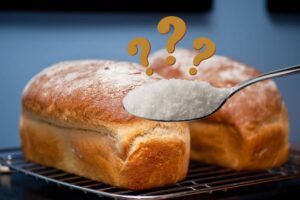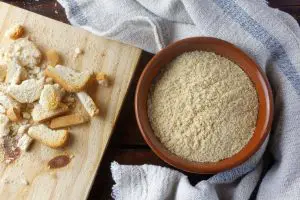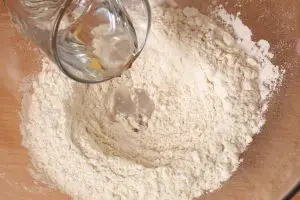When you are baking bread, you may wonder if sourdough starter is the same as poolish. While they are similar, there are several distinct differences between them. With sourdough starter, the yeast comes from the natural yeasts from the air that enter your flour and water mix, while with poolish, the yeast is added to the flour and water. Take a look at their primary differences.
Differences Between Sourdough Starter and Poolish
Although sourdough starter and poolish are both considered preferments that help you create bread with great flavor, they have some distinct differences. Take a look at poolish vs. sourdough starter.
1. The Yeast
The first major difference between poolish and sourdough starter is the yeast. With sourdough starter, you get a symbiotic colony of bacteria and yeast. It has different bacterial and fungal populations that live together in a symbiotic relationship. This is what gives you the flavors and fragrances in your bread.
Poolish has commercial yeast, which has no bacterial population. The flavor is still delicious, but it is milder and not as complex. The yeast is added directly to the water and flour. Although both provide a basis for fermenting the dough, they go about it in different ways because they use different forms of yeast.
2. Acid Levels
Another difference is that the poolish is less acidic than the sourdough starter. The commercial yeast doesn’t have the same bacteria, so it only has a small amount of acid-producing bacteria. It will end up tasting less sour than the bread made with sourdough starter.
Sourdough starter has more acid producing bacteria that are used to ferment the dough. They consume the simple sugars to release carbon dioxide and organic acids, which is why bread made with it is more sour and has a more complex flavor.
3. Hydration
Another major difference between sourdough starter and poolish is the hydration percentage. Poolish has a hydration of 100%, while sourdough starter has a hydration of between 60% and 100%. Normally, poolish is made of equal parts flour and water, which is why it is 100%
Sourdough starter has a range from 60% t0 100%, with hydration above 80% being liquid sourdough starter. This gives you the ability to choose how sour you want the bread to be. If you use a lower hydration level, you will get a more sour flavor, similar to vinegar, but with a higher hydration level, the sourness is more smooth.
4. Ease of Use
Finally, poolish uses a commercial yeast stain, and it is highly active and consistent in its ability to leaven the bread. This makes it much easier for beginners because there are fewer issues than can come up.
Sourdough starter, on the other hand, can be difficult. There are times when it is more active than others, and a lot of factors come into play. Depending on how active it is, the time it takes to ferment can vary. It requires more experience to know how to do it. The baker needs enough skill to know when the fermentation process is complete so that they don’t overproof or underproof the dough.
How Are Poolish and Sourdough Starter Similar?
Poolish and sourdough starter are similar because they are both made using pre-fermented flour and water. They contain microbes that are fermentative, and they leaven the bread through the release of carbon dioxide gasses.
With both, a small portion of the flour is separated and fermented for eight to twelve hours, and then it is mixed with the final dough to start the fermentation process. In both cases, acidity helps to develop during this pre-ferment process which is why they have the sourness.
Is Sourdough Starter the Same as Levain?
Sourdough starter and levain are very similar when you are baking bread. The main difference is that the levain can be used to change the flavor profile. However, many people use sourdough starter in place of levain when they are baking bread. They are both preferments that allow you to ferment your bread.
Which Should You Use for Baking?
If you are just starting out, poolish is going to be easy to use. It is a great option for beginners. It leavens more consistently. However, you don’t get quite the same depth of flavor with poolish. The sourdough starter is more acidic and offers more sourness and complex flavors.
However, you can make the poolish more sour by placing it in a cold refrigerator for 24 hours where it can go through its final proofing. This causes it to produce more acids, which increases the sour flavor.
Final Words
Although sourdough starter and poolish are both preferments for baking bread, there are a few differences between them. Sourdough starter gives you a more complex and sour flavor and aroma, but poolish is easier to bake with.






